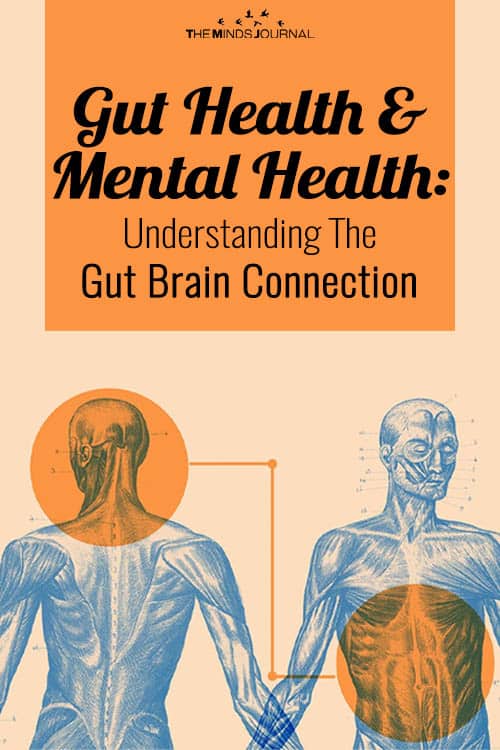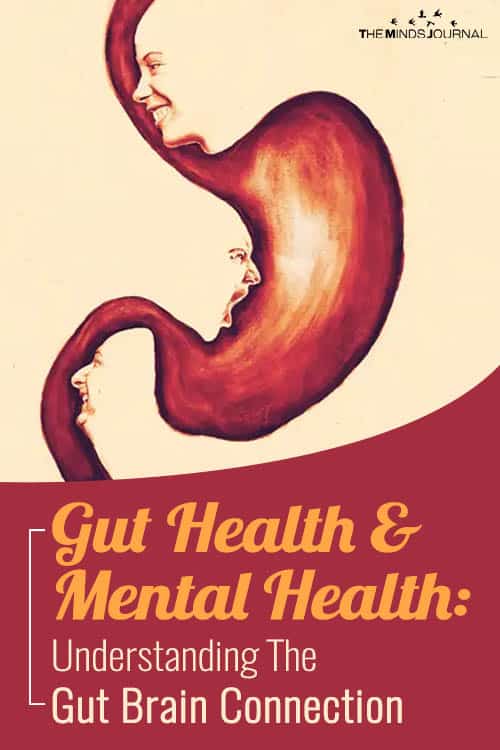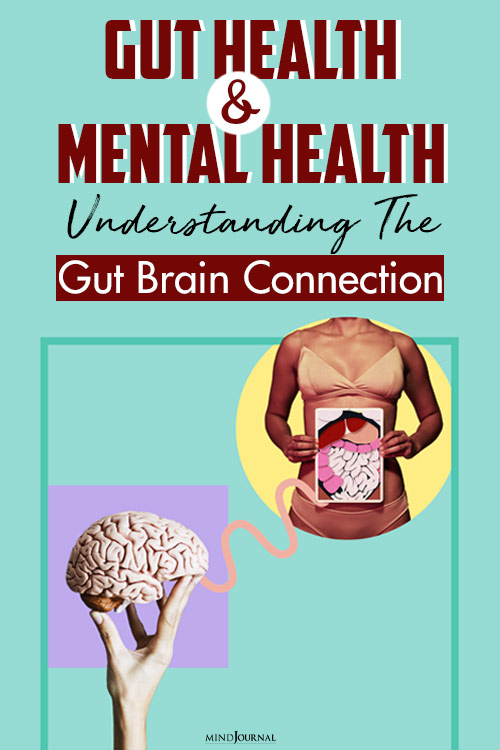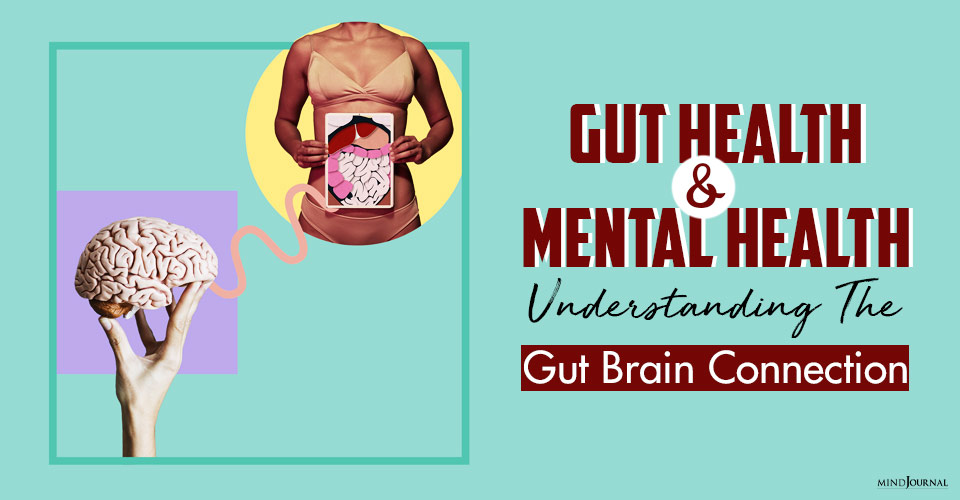Do you feel stressed and anxious? Do you feel exhausted all the time? Do you feel like running to the bathroom when you’re excited or nervous? Do you get angry when you are hungry or bloated?
Is your gut feeling trying to tell you something? Well, it just might. This is how your gut brain connection works.
As recent studies reveal that your gut health may influence your mental health, your anxiety may be a result of miscommunication between your brain and your gut. Scientists believe that managing the bacterial population in the gut can help us improve mental disorder symptoms.
Why The Gut Is So Important
“The road to health is paved with good intestines!” – Sherry A. Rogers
With new research being conducted every day, scientists are now talking more about the importance of gut health. Your gut is certainly one of the crucial biological systems in your body. But before we can understand how the gut and mental health are connected, we need to know certain terminologies and why the gut is so important, without getting overburdened with too much information.
The gut is also known as GI tract or gastrointestinal system. Microbiota refers to gut bacteria or intestinal flora, whereas the biological system of these microorganisms is known as the microbiome. Trillions of microbiota exist in the microbiome which is inside the gut. Probiotics refer to the good bacteria in the gut which is good for the body.
Related: Meet Your Second Brain: The Gut
Now that you have some idea about your gut, let us take a look at why your gut is so important for your health according to science:
- Scientists identify the gastrointestinal system as the “second brain”.
- The gut or the “second brain” operates independently and the brain doesn’t necessarily control it.
- The gut is responsible for most of the water and nutrient absorption.
- The GI tract includes almost 80 percent of immune cells in the body.
- Almost 20 hormone processes are linked to the GI tract.
- The gut comprises over 1 billion nerve endings. These neurotransmitters are called the enteric nervous system (ENS).
- In several instances, the enteric nervous system sends signals directly to the brain.
- The gut brain axis refers to the impact the gut and enteric nervous system have on cognitive and emotional functions in the brain.
However, the most important effect the gut brain connection, microbiome, and the ENS have on our body is the impact on our state of mind.
Can Gut Health Impact Our Mood?
Apparently, yes! Researchers have found that stress, depression, anxiety, and other pediatric disorders like hyperactivity and autism, are associated with gastrointestinal abnormalities. Studies have also found that stress can be caused by certain gut bacteria which also affects the immune system adversely. Although more studies are being conducted, it has been medically established that our mental and emotional health greatly depends on our gut health.
Scientists have discovered that there is a complex two-way communication system between the gut and the brain that not only affects our physical health but our mental health as well. The complex interactions of the gut-brain axis (GBA) ensure the proper functioning of gastrointestinal homeostasis and impacts our higher cognitive functions. Apart from managing & improving gut functions, it also connects the intestinal mechanisms with the brain’s cognitive and emotional centers.
It has been proven that there are neurotransmitter receptors in the gut bacteria which is used to directly communicate with the brain. They communicate through neural pathways like the vagus nerve.
This high-functioning, complex line of communication between the nervous system and the gut is known as the gut-brain axis. Studies have discovered that when this super complex system is disturbed, it leads to various physical and mental health ailments such as inflammatory gastrointestinal disorders, obesity, anxiety, addiction, eating disorders, etc.
How The Gut Brain Connection Affects Mental Health
The impact of the gut brain axis on our mood is perhaps the most surprising element of this connection. Science has proven that most of the neurochemicals supply originates in the intestines. Around 90 percent of your serotonin and about 50 percent of dopamine is produced by the bacteria in the GI tract. However, recently researchers have realized the important role the microbiota play in producing these essential chemicals.
According to a story published in The New York Times in 2015, microbiologist Mark Lyte of the Texas Tech University Health Sciences Center, along with other experts, discovered that the microbiota secretes various chemicals, but among them, few are similar to the elements “used by our neurons to communicate and regulate mood, like dopamine, serotonin, and gamma-aminobutyric acid (GABA).” Lyte added these “appear to play a function in intestinal disorders, which coincide with high levels of major depression and anxiety.”
Back in 2014, Norwegian researchers analyzed the excrement of more than 50 people and found that the feces in depressed people contained a specific common bacteria. Thanks to studies like these, experts are now widely accepting those gastrointestinal irregularities are linked with several mental health issues like depression, anxiety, etc. Research even reveals that certain bacteria in the gut can lead to stress and anxiety which can actually damage the immune system.
Related: 7 Ways to Improve Your Gut Bacteria, Based on Science
According to a 2015 Behavioral Brain Research publication:
“The brain-gut axis is a bidirectional communication system between the central nervous system and the gastrointestinal tract. Serotonin functions as a key neurotransmitter at both terminals of this network. Accumulating evidence points to a critical role for the gut microbiome in regulating normal functioning of this axis. There is also substantial overlap between behaviors influenced by the gut microbiota and those which rely on intact serotonergic neurotransmission.”
Whenever we feel excited, anxious, nervous, stressed, frustrated, angry, or even happy, our gut knows it. Every emotion that generates in the brain sends a signal directly to our gut. This goes to show that the gut feeling we usually have when something is not right is actually our microbiota helping us make intuitive decisions with higher cognitive skills. Our mood impacts the health of our gut and our gut health influences our mood.
Healing The Mind Through The Gut
Lyte and his fellow researchers are doing excellent work in understanding how gut health can help in treating mental disorders. In fact, researchers are now suggesting the use of “psychobiotics” – using tailored probiotics – to treat mental health issues.
Psychobiotics are a novel class of probiotics that influence the functions related to the central nervous system (CNS) and are managed by the gut brain axis (GBA). The process is conducted by the GBA through the metabolic, neural, and humoral pathways to enhance gastrointestinal (GI) function and operate in an anxiolytic and antidepressant capacity.
Psychobiotics can be defined as live organisms that result in various health benefits, when consumed sufficiently, especially by people affected by mental disorders. These are a group of probiotics that can create and provide neuroactive substances, like serotonin and gamma-aminobutyric acid that impact the brain gut connection.
Psychological well-being is a result of good mental health. Proposed by Timothy G. Dinan of University College Cork and his colleagues, psychobiotics have enabled scientists to work on a virgin aspect of neuroscience. It has been observed over the past 5 years that psychobiotics strains can prevent inflammation and decrease cortisol levels which improved symptoms related to depression and anxiety.
Further studies have revealed that psychobiotics can lead to psychotropic effects on stress, anxiety, and depression.
Psychobiotics can also effectively improve neurodevelopmental and neurodegenerative disorders like –
- Parkinson’s disease (PD)
- Autism spectrum disorder (ASD)
- Alzheimer’s disease (AD)
Moreover, psychobiotics application may enhance cognition in people with AD, motor functions of PD patients, symptoms of ASD, and overall GI function. This novel class of probiotics can also control proteins and neurotransmitters like glutamate, serotonin, gamma-aminobutyric acid (GABA), and brain-derived neurotrophic factor (BDNF). These are crucial for managing memory processes, learning, cognitive functions, mood, and neural excitatory-inhibitory balance.
However, facts related to the effects of psychobiotics on neurological conditions and mental and disorders are still somewhat limited as further studies are needed to determine their effectiveness as treatments for psychiatric disorders.
Related: The Food Craving Guide: What You Crave For and What Your Body Actually Needs
How Gut Health Affects The ‘Gut Brain Axis’
A healthy microbiome is usually charged with good bacteria that are beneficial for you. It breaks down, assimilates, and absorbs nutrients from all the foods we consume and fuels our body. Gut microbes also produce dopamine and serotonin which boosts and regulates our mood.
With a healthy gut, the gut brain connection functions effectively as the lines of communication operate properly. As the right hunger & satiation signals are sent between the gut and the brain, nutrients are effectively synthesized and we feel satisfied, energized with an overall sense of physical and mental well-being. As enough serotonin is formed, it also allows us to cope with stress better. A happy and healthy gut is the key to a happy and healthy mind.
However, due to poor lifestyle and diet, our gut can become unhealthy and adversely affect gut bacteria, reduce serotonin production and hinder communication between the brain and gut. As a result, the levels of stress, anxiety, depression, and other negative emotions rise affecting our mood and mental health.
An unhealthy gut and microbial imbalances can result in various gut issues like the inflammatory gut, leaky gut syndrome, gut dysbiosis, SIBO, irritable bowel syndrome (IBS), and candida. These conditions hamper the lines of communication. This information is then sent to the brain through a neural pathway which causes the brain to react with behaviors like irritability, mood swings, panic, anxiety, and depression.
However, there are ways you can improve your gut health with small, simple, and effective lifestyle and diet changes.
Ways To Boost Your Gut Health And Mood
Here are a few quick and simple ways for you to improve your gut health and keep your gut brain axis proper and effective:
1. Consume foods rich in probiotics & prebiotics
Add prebiotic and probiotics rich foods to your diet. This can help boost the number of good bacteria in your gut flora. Prebiotic food feeds good bacteria in the gut flora while probiotics add diversity.
2. Follow a healthy diet
Remove foods from your diet that damage good gut bacteria and cause inflammation in the gut like refined carbohydrates, gluten, added sugar, processed foods, and alcohol to aid a healthy gut.
3. Consume fermented foods
Foods like kimchi, sauerkraut, coconut milk or Greek yogurt, beet kvass and various probiotic supplements can help boost good bacteria in your gut. Combined with a gut-healthy diet, fermented foods can be significantly beneficial.
4. Eat more veggies
Consume more steamed vegetables with your meals. Whether having breakfast or dinner, try to add some leafy, green veggies to your diet. Steamed vegetables are usually rich in fiber that helps to improve various functions in the gut.
Related: 21 Health And Nutrition Myths Backed By Science
5. Lower stress levels
Although it may not be as easy as it sounds, reducing your stress levels through meditation, massage, yoga, sleeping, and other self-care habits can help your gut a great deal and improve your mood. Make self-care a daily priority and give the gut healing process a much-needed boost.
A Healthy Gut Makes A Healthy Mind
Now that you understand the connection between your gut and your brain, you can now choose to control your stress and anxiety, relieve signs of depression, boost your mood and live a happier life.
Gut health is crucial for our mental health and the better the gut-brain axis functions, the better you will feel physically, mentally, and emotionally. Follow the strategies shared above and bring a change in your diet and lifestyle if you wish to build a healthier gut and improve your emotional and mental well-being.














Leave a Reply